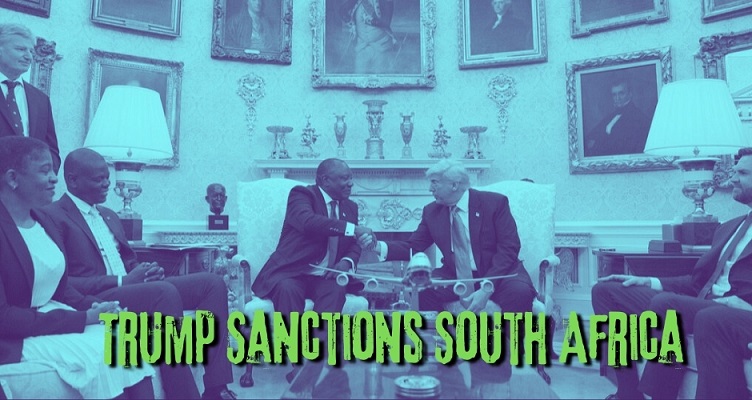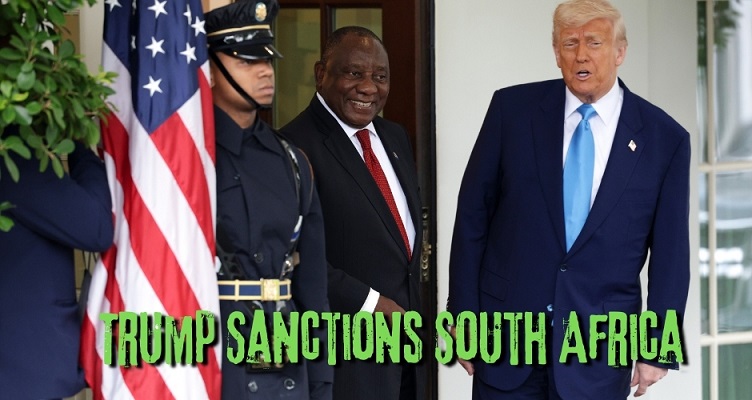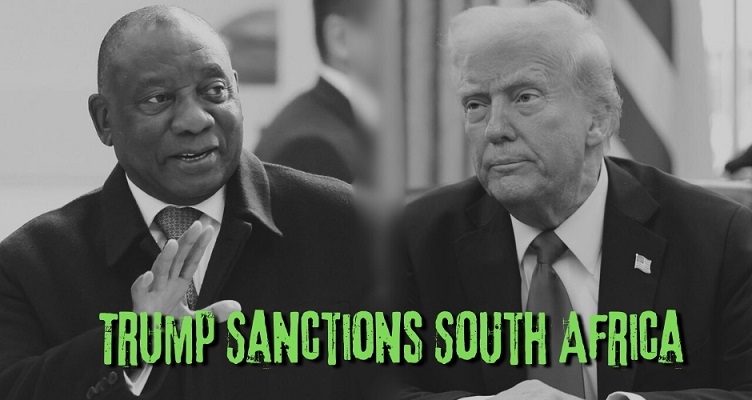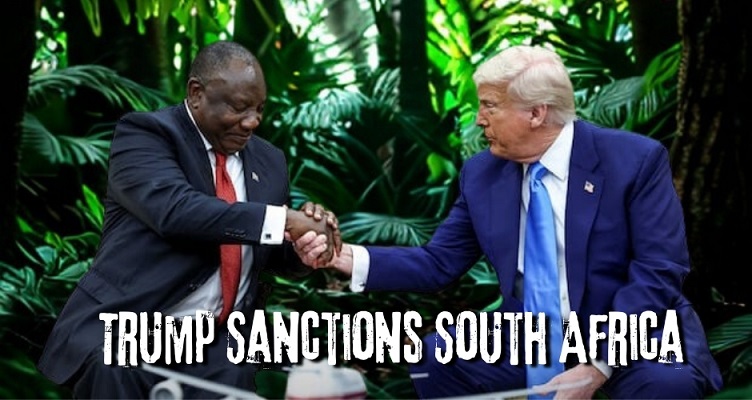Introduction: A Diplomatic Confrontation
The White House became a stage of tension on May 21, 2025, when U.S. President Donald Trump Sanctions South Africa President Cyril Ramaphosa took center stage in an explosive faceoff. What was supposed to be a diplomatic encounter to confer on trade and bilateral relationships ended up being a shouting match over an allegation of a “white genocide” in South Africa. President Trump presented videos and proof of purported systematic attacks against white South African farmers that President Ramaphosa strongly denied, claiming that South African criminal activity hits all communities without regard to race. The Times+8 The Guardian+8

Historical Context: U.S.–South Africa Relations
Trump Sanctions South Africa have shared an intricate relationship, marked by moments of cooperation and conflict. Under apartheid, America applied sanctions to try and force the South African government to discontinue its race-based system of discrimination. In the post-apartheid era, relations have been cordial, with cooperation on trade, health, and education. There has been tension in recent years, however, not least because of disagreement over land reform and human rights matters.
The Oval Office Meeting: A U-Turn
The Presentation
President Trump lowered the lights during the Oval Office meeting and played a video that had included such incendiary speech by radical South African leaders as “Kill the Boer, kill the farmer.” He also played accounts that provided evidence of planned white farmer attacks. BBC+5 PBS

Ramaphosa’s Reaction
President Ramaphosa reacted strongly, assuring that this is not government policy and his government loathes all violence. He clarified that crime in South Africa is not the white minority’s issue but a broader issue with the entire population. New York Post+6 Council on Foreign Relations
The Refugee Policy: Mission South Africa
The Trump administration introduced “Mission South Africa” in February 2025, a scheme granting asylum to white South Africans, mostly Afrikaners, based on alleged systemic persecution and brutality. The action was criticized by human rights groups and South African authorities, who claimed the allegations of persecution were politically motivated and unfounded. Wikipedia+1
Land Reform Controversy
The crux of the tensions in South Africa is its land reform policy, e.g., expropriation without compensation to correct the injustices of the apartheid decades. The policy has been condemned by President Trump as illegal persecution of whites who own land. However, the South African government has maintained that the reforms are aimed at achieving economic balance and have been conducted under the precincts of the law. The Washington Post

Political and Social Consequences
U.S. Domestic Politics
President Trump’s position on South Africa resonated with certain U.S. voter blocs, mainly those sensitive to issues of rights to own land and accusations of discrimination against whites. His rhetoric and policy are sparking racial tension and subverting human rights standards everywhere, his critics lament. The Guardian+2
South African Perspective
In South Africa, denial of the “white genocide” fiction by the government has been corroborated by most people, who find that the accusations are an overstatement of the issues that are afflicting the nation. The emphasis, they contend, should be on combating crime and injustice against all South African people. The scandal has also ignited hot debates of national identity and apartheid legacy.
Media and Public Reaction
Oval Office meeting and the one that followed in policy terms have drawn humongous media attention as much as public attention. President Trump’s skill at discussing difficult topics has been appreciated by his fans, whereas his critics hold him responsible for giving a false impression, which can be detrimental to diplomatic relations and social harmony. New York Post+7

Conclusion: Navigating a Complex Relationship
The Trump–South Africa episode underscores the complexities of international diplomacy, especially when domestic politics and historical grievances intersect. As both nations navigate this challenging period, the emphasis must remain on constructive dialogue, mutual respect, and a commitment to addressing the root causes of inequality and violence. CBS News
Call to Action
Engage in the conversation: What are your thoughts on the Trump–South Africa controversy? Share your perspectives in the comments below.
Be smart: Subscribe to our newsletter on global affairs news and policy analysis.
Read more: See our extensive coverage of land reform, refugee policy, and U.S.–Africa relations. The New Yorker+




